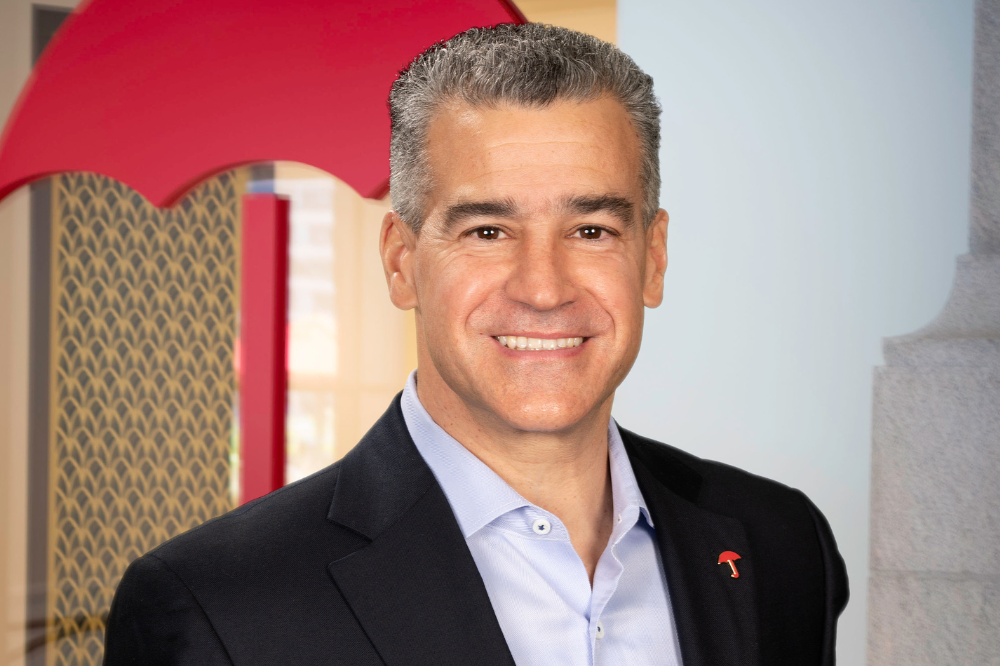US trucking continues to bear the load of rising costs – expert

Can you tell me about yourself and your role with Travelers/Northland Transportation?
I’ve been in the insurance industry for more than 20 years and joined Travelers in early 2022 to lead the Northland Insurance business. My insurance background is in strategy, business development and finance, and I’ve also led several commercial insurance P&Ls. I also spent an additional 10 years in the computer software industry early in my career, so I have an automation and data analytics bent to my thinking.
As president of Northland, which is the industry’s largest wholesale transportation insurance company, I work closely with our talented and experienced team to offer industry-leading truck insurance solutions for owner-operators and fleets through our specialty transportation wholesaler partners. In 2023, we will celebrate our 75th anniversary – a testament to the organization’s dedication to trucking and our ability to constantly evolve to serve our customers.
What is the current state of commercial auto insurance in the US?
Commercial auto has been affected by similar challenges to those seen in personal auto. Rising truck repair and replacement costs were initially caused by COVID-related supply chain shortages and strong demand when the freight rates hit record highs. Now, inflation continues to drive the costs of trucks, parts and labor higher.
Truck insurance is also facing significant challenges created by large jury awards, which have been increasing in both dollar amounts and frequency. Unfortunately, this trend is limiting carrier options in the marketplace and contributing to higher premiums. Northland supports trade organizations, such as the American Trucking Associations, which are advocating on behalf of the industry for regulatory reform to help address this issue.
We also work with our customers to help them mitigate some of these risks. For instance, our dedicated claim professionals not only understand trucking and are experienced specifically in heavy truck claims, but they also know jurisdictional differences and local counsel who can help more quickly settle or defend claims to drive the right outcomes.
We also provide risk control resources and information that can help our customers keep fleets on the road and operating safely. This includes comprehensive training resources, on-site and virtual safety reviews with customers where our transportation safety experts provide comprehensive analysis and safety recommendations, and self-service tools for smaller fleets and owner-operators. Northland can also help trucking companies better evaluate emerging technologies and understand the cost benefits of investment.
These best practices help our customers retain drivers and lower their total cost of operations over time.
How has the pandemic impacted the trucking sector?
Demand for trucking peaked during COVID, first as home delivery became more common, and then as we worked through the supply chain backlog. We saw record numbers of new startup truck operators, usually one or two units, due to strong earning potential when freight rates hit record highs.
Company drivers benefited from wage increases and other perks during that time as well, which attracted a more diverse driver pool. According to the Women in Trucking Association’s 2022 Women in Trucking Index, women drivers make up almost 14% of the industry today, up from 10% in 2019.
Many new truck deliveries have been delayed due to supply chain issues, and, while prices have come down from historic highs, there’s still a limited and aging inventory of used trucks. Fuel prices have risen, and inflationary pressure is affecting pricing and labor. Some smaller operators have shut their doors due to rising costs, but many of those drivers are choosing to join larger fleets.
How has insurance helped mitigate this?
Insurance protects truck owners by providing coverage if there’s an accident or damage to their vehicle, so we will cover these higher costs of repair parts and labor to get their trucks back on the road quickly. Or, if needed, we help them manage the increased cost for a replacement truck as long as their insured values are kept up to date. We also provide added benefits, such as roadside assistance and towing reimbursement, to help owners cover unexpected costs from vehicle breakdown.
Which new and emerging technologies are being used to help trucking companies control their insurance costs?
Automated Driver Assistance Systems (ADAS), which are similar to the automated braking and lane assist features that you may experience in your personal automobile, have helped trucking companies improve overall safety.
The data and analytics provided by telematics can be used to provide tailored safety training and driver coaching. For example, if a vehicle is in a crash, the telematics system can help fleet managers determine the speed prior to impact, if the brakes were applied, and if the driver took any evasive maneuvers to avoid the other vehicle or object. Along with identifying unsafe behavior such as distracted driving and opportunities for improvement, this data can also help trucking companies acknowledge and reward safe driving and make better decisions about how employees are coached to potentially reduce preventable accidents.
Additionally, insurance companies can also use telematics and camera data to more effectively defend or settle accident claims, which can significantly lower legal costs and reduce the likelihood of large lawsuits.





